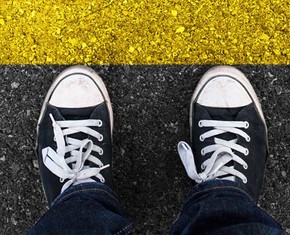The views expressed in our content reflect individual perspectives and do not represent the authoritative views of the Baha'i Faith.
Perhaps the most relevant discovery my exploration of the Baha’i teachings provided for me had been a substantial issue or mystery in my many discussions of Methodist and Protestant theology—the relationship between faith and action, between salvation and deeds. Could one who had been officially saved (which in my church was a mystery in itself) become unsaved by becoming an unsavory character or by committing reprehensible acts against society and other individual human beings? Could deeds be his undoing?
According to the Baha’i standard, each prophet brings two categories of teaching, twin types of instruction and guidance. The first is a renewed and incrementally more advanced understanding of reality. The messengers of God provide a new outpouring of knowledge about all aspects of reality. The second aspect of the teaching of the prophets consists of specific guidance in the form of a daily spiritual practice and a social order. Most often, this aspect of their revelation contains laws, ordinances, exhortations, and a paradigm for personal behavior—the daily regimen for the new believers.
This concept of a vital interplay between knowledge and action, between faith and deeds, was totally at odds with all I had been taught at Sunday school. At the end of the first paragraph of Baha’u’llah’s Most Holy book, the repository of his laws and plan for social reformation, is a very powerful pronouncement that these two processes (knowing and doing) are inseparable, reciprocal, and interdependent. Recognizing the personal savior or prophet for the age in which you live is indeed the first step, but is not sufficient by itself. The signal of your recognition is a willful reformation of your character: “These twin duties are inseparable. Neither is acceptable without the other.” – Baha’u’llah, The Most Holy Book, p. 19.
The power of this one unified concept effectively disentangles the basis for the age-old warfare within Christianity that began with the argument between James and Paul, and had finally resulted in the Protestant Reformation, the schism between science and religion, and ultimately the splintering of a single revelation into a thousand pieces. For where Paul asserts that faith alone suffices, James states that faith without action is dead, even as Christ himself affirmed that:
…every one that heareth these sayings of mine, and doeth them not, shall be likened unto a foolish man, which built his house upon the sand: And the rain descended, and the floods came, and the winds blew, and beat upon that house; and it fell: and great was the fall of it. – Mathew 7:26-27.
In the Baha’i teachings, faith and action go together. Neither is possible without the other. Abdu’l-Baha defines true faith as the combination of “conscious knowledge” and “the practice of good deeds:”
Although a person of good deeds is acceptable at the Threshold of the Almighty, yet it is first “to know,” and then “to do.” Although a blind man produceth a most wonderful and exquisite art, yet he is deprived of seeing it. Consider how most animals labor for man, draw loads and facilitate travel; yet, as they are ignorant, they receive no reward for this toil and labor. The cloud raineth, roses and hyacinths grow; the plain and meadow, the garden and trees become green and blossom; yet they do not realize the results and outcome of all these. The lamp is lighted, but as it hath not a conscious knowledge of itself, no one hath become glad because of it. Moreover, a soul of excellent deeds and good manners will undoubtedly advance from whatever horizon he beholdeth the lights radiating. Herein lies the difference: By faith is meant, first, conscious knowledge, and second, the practice of good deeds. – Abdu’l-Baha, Baha’i World Faith, pp. 382-383.
These words of Baha’u’llah’s, from his small book of mystical aphorisms called The Hidden Words, perfectly summarize the Baha’i view of faith and action:
O Son of Dust! Verily I say unto thee: Of all men the most negligent is he that disputeth idly and seeketh to advance himself over his brother. Say, O brethren! Let deeds, not words, be your adorning. – Baha’u’llah, The Hidden Words, pp. 23-24.
O Son of My Handmaid! Guidance hath ever been given by words, and now it is given by deeds. Every one must show forth deeds that are pure and holy, for words are the property of all alike, whereas such deeds as these belong only to Our loved ones. Strive then with heart and soul to distinguish yourselves by your deeds. In this wise We counsel you in this holy and resplendent tablet. – Ibid., pp. 48-49.
Next: A Smart and Logical God?
















Comments
Sign in or create an account
Continue with Googleor